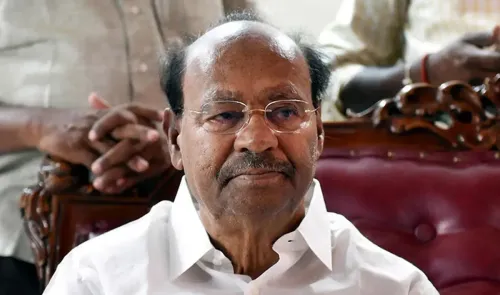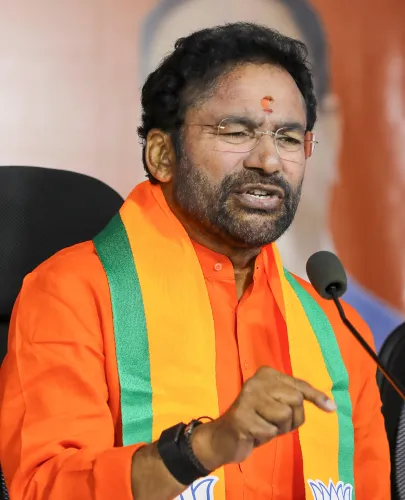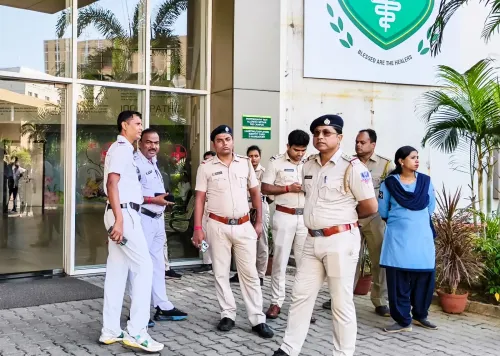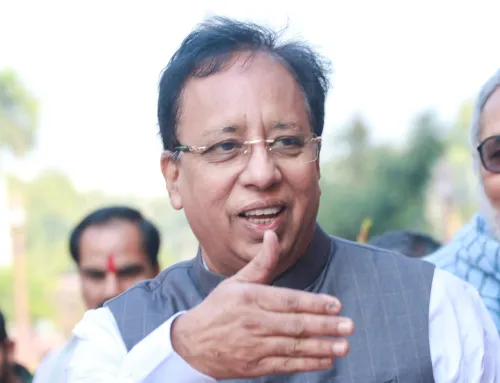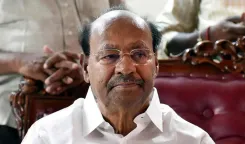Is Being Patriotic Really That Challenging?
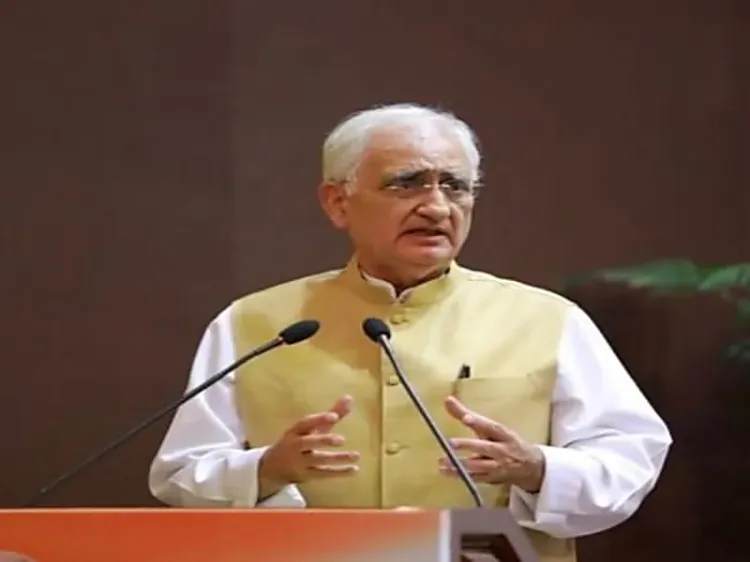
Synopsis
Key Takeaways
- Political divisions are emerging within the Congress party.
- Salman Khurshid's comments on patriotism have sparked controversy.
- Support for Article 370's abrogation by Khurshid has created discomfort in the party.
- Shashi Tharoor's praise for the Modi government has led to internal backlash.
- The Congress party appears to be struggling with unity amid these developments.
New Delhi, June 2 (NationPress) First, party MP Shashi Tharoor and now esteemed veteran Salman Khurshid – both senior Congress members appear to be becoming a 'nuisance' for the Congress party as they consistently commend Prime Minister Narendra Modi's administration for its new anti-terrorism approach while 'contradicting' their own party's stance on matters such as surgical strikes and the abrogation of Article 370.
On Monday, Khurshid expressed his worries regarding the political rifts in India amidst a global initiative to highlight Pakistan's actions, questioning why it seems so challenging to exhibit patriotism, a subtle jab at his critics within the Congress.
“While on a global mission against terrorism, it is disheartening that individuals at home are busy calculating political allegiances. Is it so hard to show patriotism?” he posted on X.
Former External Affairs Minister Salman Khurshid’s support for the abrogation of Article 370, during his address to academics and think tanks in Indonesia recently, stirred discomfort within the Congress party, though the party remained silent, unlike in Tharoor’s case where it vocally criticized his 'Modi bhakti' at a public event. Meanwhile, the BJP quickly welcomed Khurshid's endorsement of the Article 370 revocation.
While addressing the audience, Khurshid remarked that the central government's decision to revoke Jammu and Kashmir's special status in August 2019 has led to positive transformations and enhanced prosperity in the region, with a noticeable effort by Pakistan-based terrorists to revert the progress in the Kashmir Valley.
Recently, Shashi Tharoor, leading one of the seven delegations, faced considerable backlash within the party after he credited the Modi-led government for initiating India’s ‘first’ surgical strikes across the border, which involved the armed forces taking action against Pakistan. His clear endorsement of the Modi government’s new security doctrine faced strong opposition from the party, as several senior leaders objected to his remarks and urged him not to tarnish the party's image, which has been pivotal to his political identity.
In response to the backlash, Tharoor vowed to confront the criticism from within the party upon his return. He emphasized that it was crucial to present India’s position on terrorism and that this was not the time for internal disputes but rather to ensure the success of the mission.
“Once we return to India, we will definitely address our critics and engage with our colleagues and the media,” he informed the press.
Significantly, there is an increasing sense of discomfort and unease within the Congress party since the Centre selected 'leaders of its preference' from the historic party for a multi-party delegation to advocate India’s stance against Pakistan-sponsored terrorism on the global stage.
Following Operation Sindoor, Congress has launched vigorous and vocal attacks on the Centre, demanding clarification regarding the number of jets downed by Pakistan, accountability for the Pahalgam attack, and whether information was disclosed to the enemy in advance. Yet, with party veterans praising the Modi government’s Operation Sindoor and the subsequent global outreach mission during foreign visits, the Congress appears to be a fractured entity, with discordant voices and opinions dominating public discourse.


